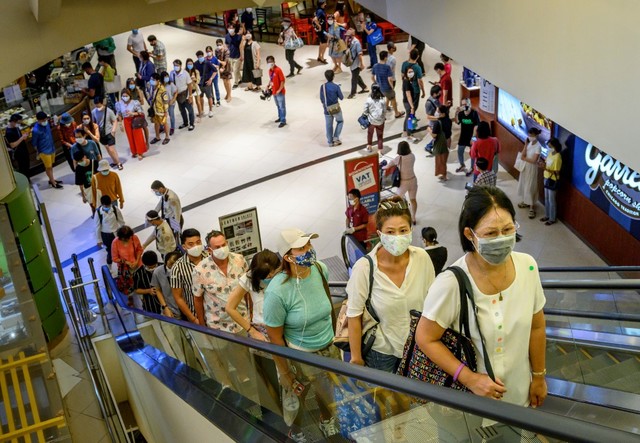Thai parliament urged to pass record $60-billion virus stimulus bill
'To get the country back on track...we urgently need the budget of 1.9 trillion baht,' says Thai Prime Minister Prayut Chan-o-cha
by Agence France-Presse
BANGKOK, Thailand – Thailand's premier on Wednesday, May 27, urged parliament to approve the kingdom's biggest-ever stimulus package to revive an economy battered by the coronavirus, which has brought tourism to a standstill, slashed exports, and left millions jobless.
The 1.9-trillion-baht ($59.6-billion) package would be a much-needed financial boost for Southeast Asia's second biggest economy, which is expected to shrink by 5% to 6% in 2020.
Members of parliament – who inaugurated a new building on Wednesday – are set to discuss 3 bills over the next 5 days covering health care, unemployment, and a fund to stabilize markets and boost purchasing power.
The opposition Pheu Thai party has vowed to grill the ruling military-backed government – which holds a slim majority – on the bill and its handling of the epidemic.
On Wednesday, Prime Minister Prayut Chan-o-cha pleaded for the swift passage of the bill, saying the administration was currently attempting to manage the economy "using the central budget, the next year's budget, or transferring" from other areas.
"But it is not enough," Prayut told the opening session.
"To get the country back on track...we urgently need the budget of 1.9 trillion baht."
About 550 billion baht ($17.2 billion) is expected to go to farmers and informal workers such as street vendors and those employed in massage parlors and bars.
Tourism-reliant Thailand started showing the first signs of the virus in January when Bejing prohibited its citizens from traveling abroad.
Chinese make up a majority of the kingdom's visitors.
Tourism revenues dropped by 40% in the 1st quarter, Prayut said, and the next quarter will be even "more severe."
The virus toll, which stands at a little over 3,000 infections and 57 deaths, has slowed in recent weeks and the country is gradually reopening.
But the restrictions – and a ban on inbound flights – have left Thais struggling to put food on the table.
A local trade association estimates that 6.5 million people will be permanently out of a job by the end of 2020.
So far, more than 20 million have registered for a government handout of 5,000 baht (US$150), while many others say they have been left out of the scheme.
The kingdom's economy was flagging even before the pandemic.
Many in politically febrile Thailand are unhappy with the ex-generals, who seized power in a 2014 coup and still run the government. – Rappler.com